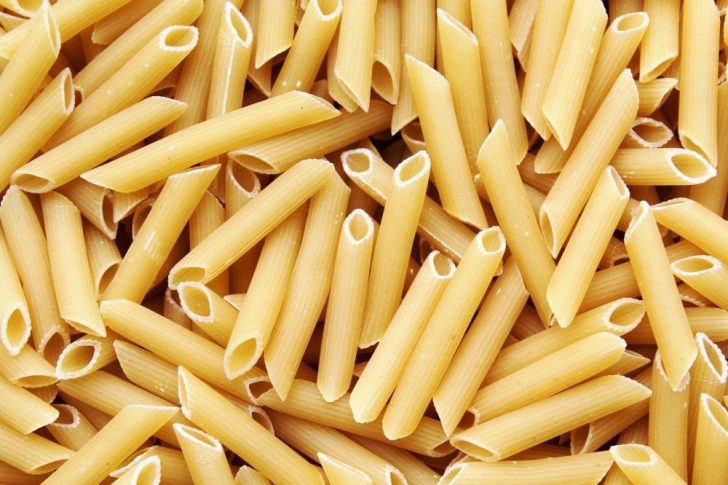PCOS Diet: A Comprehensive Approach to Managing Polycystic Ovary Syndrome

Introduction
Polycystic Ovary Syndrome (PCOS) is a hormonal disorder that affects many women worldwide. One of the most effective ways to manage PCOS symptoms is through a well-balanced diet. In this article, we will provide a thorough overview of the PCOS diet, including its various types, popularity, and quantitative measurements. Additionally, we will discuss the differences between different PCOS diets and explore the historical advantages and disadvantages associated with these diets.
PCOS Diet Overview

The PCOS diet aims to regulate insulin levels and balance hormone production, which are the key factors contributing to PCOS symptoms. This diet focuses on consuming whole foods, low glycemic index carbohydrates, lean proteins, and healthy fats. By following a PCOS diet, women can effectively manage their weight, reduce insulin resistance, improve fertility, and alleviate other PCOS-related symptoms.
Types of PCOS Diets
There are several types of PCOS diets that individuals can choose from, depending on their specific needs and preferences. Some popular PCOS diets include the low glycemic index (GI) diet, the Mediterranean diet, the anti-inflammatory diet, and the ketogenic diet. Each diet emphasizes different components, such as reducing sugar intake, increasing fiber consumption, or adjusting macronutrient ratios.
Low glycemic index (GI) diet: This diet focuses on consuming carbohydrates that have a low glycemic index, which affects blood sugar levels less dramatically. Eating low GI foods helps regulate insulin, manage weight, and reduce inflammation in women with PCOS.
Mediterranean diet: The Mediterranean diet emphasizes whole foods, including fruits, vegetables, legumes, whole grains, and healthy fats like olive oil. This diet has been associated with improved insulin sensitivity, weight management, and reduced cardiovascular risks, which are crucial for women with PCOS.
Anti-inflammatory diet: Inflammation is a common issue in PCOS. The anti-inflammatory diet includes foods that reduce inflammation, such as fatty fish, leafy greens, nuts, and seeds. This diet can help alleviate PCOS symptoms and improve overall health.
Ketogenic diet: The ketogenic diet is a low-carb, high-fat diet that forces the body into a state of ketosis. This can aid in weight loss and hormone regulation. However, research on the long-term effects of a ketogenic diet for PCOS is still limited.
Quantitative Measurements in PCOS Diet
Measuring certain parameters can provide valuable insights into the effectiveness of a PCOS diet. Some quantitative measurements to consider include body mass index (BMI), fasting blood sugar levels, insulin levels, and hormone levels such as testosterone, luteinizing hormone (LH), and follicle-stimulating hormone (FSH). Regular monitoring of these measurements can help individuals understand their progress and make necessary adjustments to their diet and lifestyle.
Differences Between PCOS Diets
While all PCOS diets aim to regulate insulin and hormone levels, their specific approaches and restrictions may vary. For example, the low glycemic index diet primarily focuses on carbohydrate quality, whereas the ketogenic diet restricts carbohydrate intake altogether. The Mediterranean diet, on the other hand, emphasizes consuming whole foods and healthy fats while allowing moderate carbohydrate intake. Understanding these differences can help individuals choose a PCOS diet that aligns with their preferences and goals.
Historical Advantages and Disadvantages of PCOS Diets
Over time, different PCOS diets have been studied, highlighting both advantages and disadvantages. For example, a systematic review published in 2020 found that the low glycemic index diet showed positive effects on insulin levels and weight loss in women with PCOS. However, there is limited evidence on the long-term sustainability and overall health impact of certain PCOS diets, such as the ketogenic diet. It is essential to consult with healthcare professionals and consider personal health goals when choosing a PCOS diet.
[Insert Video Here: A Dietitian’s Guide to PCOS Diet]
Conclusion
The PCOS diet offers a comprehensive approach to managing PCOS symptoms by focusing on balanced nutrition and regulating insulin and hormone levels. Various types of PCOS diets, such as the low glycemic index diet, Mediterranean diet, anti-inflammatory diet, and ketogenic diet, provide tailored options for women with PCOS. While quantitative measurements guide progress, understanding the differences and historical advantages and disadvantages of various PCOS diets helps individuals make informed choices for optimal health. Remember to consult with healthcare professionals before making any significant dietary changes. By following a well-rounded PCOS diet, women can take control of their health and live healthier, fulfilling lives.
FAQ
Are there any quantitative measurements used in monitoring a PCOS diet?
What are some popular types of PCOS diets?
What is the purpose of a PCOS diet?
Fler nyheter
Hälsocoach: Ditt stöd på vägen till ett hälsosammare liv
Introduction Polycystic Ovary Syndrome (PCOS) is a hormonal disorder that affects many women worldwide. One of the most effective ways to manage PCOS symptoms is through a well-balanced diet. In this article, we will provide a thorough overview of th...
Veronica Urena
24 april 2024
Airflow behandling – Att uppnå en ren och frisk mun
Introduction Polycystic Ovary Syndrome (PCOS) is a hormonal disorder that affects many women worldwide. One of the most effective ways to manage PCOS symptoms is through a well-balanced diet. In this article, we will provide a thorough overview of th...
Lotta Alberius
09 april 2024
Upptäck osteopati i Stockholm: En vägledning till helande och balans
Introduction Polycystic Ovary Syndrome (PCOS) is a hormonal disorder that affects many women worldwide. One of the most effective ways to manage PCOS symptoms is through a well-balanced diet. In this article, we will provide a thorough overview of th...
Alice Pettersson
10 mars 2024
Komfortrullstolar – vägen till ökad livskvalitet
Introduction Polycystic Ovary Syndrome (PCOS) is a hormonal disorder that affects many women worldwide. One of the most effective ways to manage PCOS symptoms is through a well-balanced diet. In this article, we will provide a thorough overview of th...
Lotta Alberius
08 februari 2024











